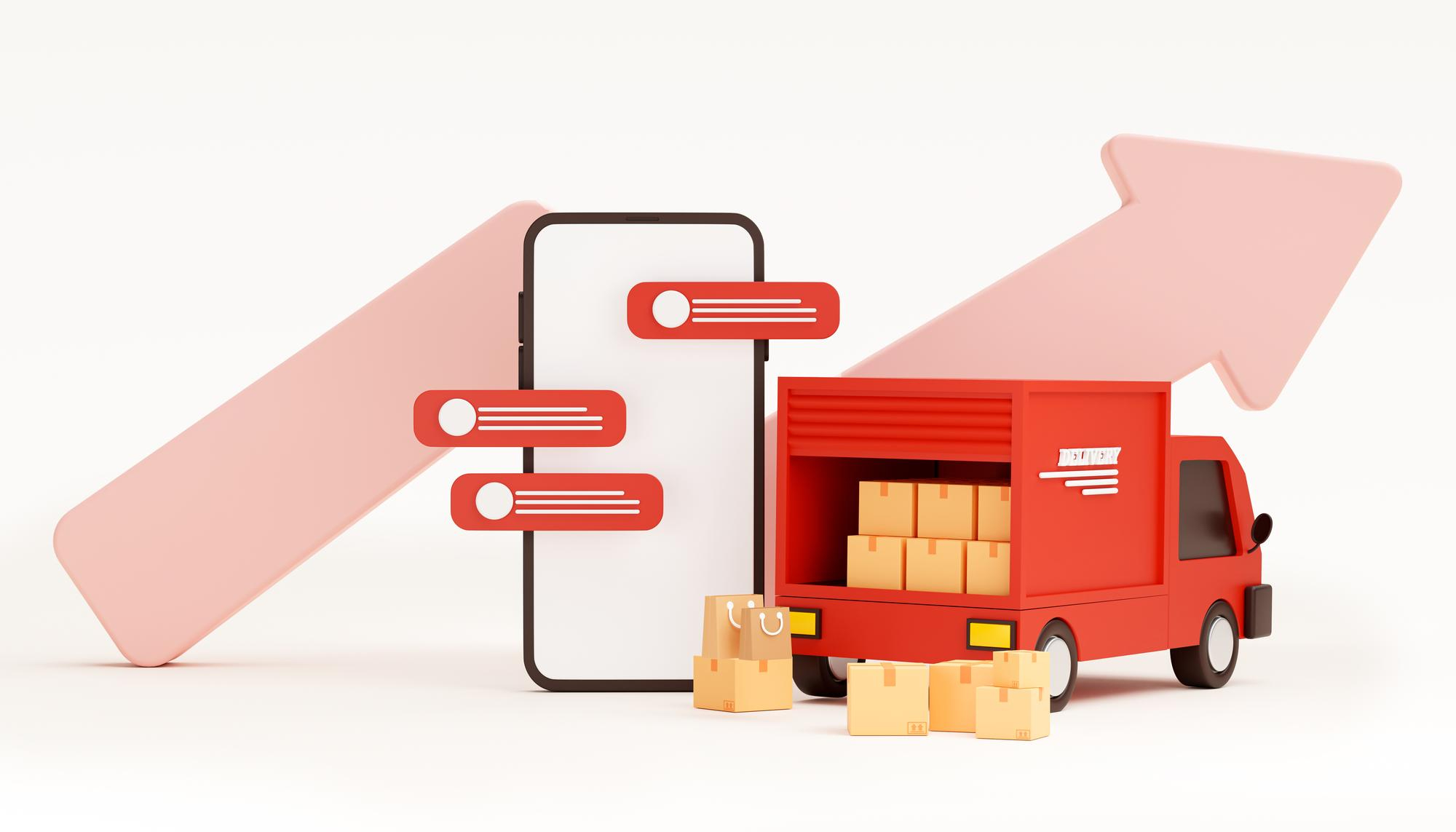Private label dropshipping is an ever-growing, profitable business with low overhead costs and minimal risk that enables entrepreneurs to start an online business without having to invest in inventory.
Table of Contents
Are you interested in starting your own business but don’t know where to begin? Dropshipping could be the answer. By leveraging third-party fulfillment resources, entrepreneurs can easily build and run their own business with a minimal learning curve. This article will provide an overview of private label dropshipping, the advantages of choosing this type of business model, how to get started, and key strategies for success.
What is Private Label Dropshipping?

Private label dropshipping is a business model where products from a third-party manufacturer are relabeled as your own and shipped directly to customers, without storing inventory. This approach gives businesses maximum flexibility in their product offerings, customer service, and branded packaging options. It also means that you can get products to customers without the need for traditional middlemen, making the entire process much less labor-intensive.
For those with limited capital looking to break into eCommerce, private label dropshipping is an attractive option because it eliminates inventory carrying costs and other expenses related to stocking private label products on shelves.
White label vs private label are two popular strategies, however they have distinct differences.
Private label is when one supplier exclusively sells to you, while white label is when a generic product is available through multiple retailers with different branding.
Depending on your goals, either approach can be beneficial, but you may not want to use both at the same time.
Private label dropshipping also makes inventory management and deadstock less of a worry as you don’t need to worry about production and warehousing costs.
As such, it becomes easier to calculate profit margins, as there are fewer expenses to factor in. Marketing and other operational costs will still need to be accounted for, but overall the process should be simpler than most other approaches due to its low overhead.
Advantages of Private Label Dropshipping

The benefits of a private label brand include:
Low Start-Up Costs
One of the most appealing aspects of private label dropshipping is its low start-up costs. You will not need to purchase any inventory or pay for costly warehousing and shipping fees, as the third-party supplier handles all of this.
Low Risk
Private label dropshipping provides opportunities with very low risk since you do not own any inventory or have any upfront costs. This means you can test different products, marketing strategies, and supplier relationships without fear of heavy losses from unsold inventory.
Flexible Location
With private label dropshipping, there is no need for a physical location. You can operate your business from anywhere with an internet connection and gain access to global markets outside your immediate geographical area.
Easily Scalable
Private label dropshipping gives you the possibility to increase your sales quickly by adding more private label products or private label dropshipping suppliers to meet customer demands. It also allows you to scale down operations by removing suppliers or products if needed.
Automation
Dropshipping is a great way to automate your store because most private label dropshipping suppliers offer automatic order processing and shipping services that enable you to keep track of orders without any manual labor required on your end.
How to Get Started With Private Label Dropshipping
If you’re interested in selling private label products, here are a few tips on how to get started with this profitable business model:
What Do You Need to Get Started With Private Label Dropshipping?
Before you get started with private label dropshipping, there are a few things you’ll need:
- A supplier – Finding a reliable supplier who can provide quality private label products at reasonable prices is key for success in this type of business.
- Product ideas – Coming up with unique product ideas that will appeal to your target market is essential for success in private label dropshipping.
- Marketing plan – You’ll need an effective marketing plan to attract customers and make sales. This should include tactics such as SEO optimization, content marketing, social media marketing, and more.
- Website design – Your website should be user-friendly, aesthetically pleasing, and optimized for mobile devices to ensure a positive customer experience when they visit your store.
- Payment system – You need an easy-to-use payment system for customers to make purchases from your store without difficulties.
- Logistics system – You should set up a logistics system so that orders are processed quickly and shipped out efficiently to customers worldwide.
How Do You Find Suppliers for Your Private Label Dropshipper Business?

Now that we know a bit more about dropshipping, let’s look at where you can find reliable suppliers for your private label dropshipping business. There are several different sources available depending on your needs:
Marketplace Platforms
The most popular way of finding private label dropshipping suppliers for dropshipping is through online marketplace platforms like AliExpress or Amazon. These platforms are big players in the ecommerce world and have become one-stop shops for many entrepreneurs looking for quality private label dropshipping suppliers and good deals on private label products. The downside of using these platforms is that there is often a lot of competition, as many other retailers also use them as their main source of suppliers.
Direct Private Label Suppliers
You may also find direct dropshipping suppliers willing to work with you directly and produce private label products specifically for your brand, in addition to the regular items they offer on marketplaces. Many direct suppliers are willing to customize products according to your exact specifications and even provide private label services so that you can create a unique product line for your business. However, it can be difficult to find direct private label dropshipping suppliers as they often don’t publicly advertise their services, so it may take some digging around online or word-of-mouth referrals to get in contact with them.
Trade Shows
Another option is attending trade shows and conferences related to the private label products you want to sell to connect with dropshipping suppliers in person. This can be especially helpful if you’re looking for specific types of private labeled products or services from suppliers, as you can get more information and negotiate deals face-to-face. You can also get an idea of what kind of products or services other companies are offering so that you can create a better product list for your store.
B2B Marketplace
Finally, there are online B2B marketplaces such as Alibaba or Made in China where businesses can connect with wholesale manufacturers who produce bulk orders at lower wholesale prices than regular retailers. These marketplaces allow businesses to find quality manufacturers while keeping costs down, making them an ideal choice for many entrepreneurs who want high quality products at wholesale prices.
How Do You Vet Dropshipping Suppliers?
Once you’ve found some potential suppliers, it’s important that you vet them thoroughly before making any commitments so that you can ensure quality products at competitive wholesale prices for your customers. Here are some tips for vetting suppliers:
Check for Reviews and Ratings
Make sure to read reviews (and ratings) from other customers who have previously worked with the supplier to ensure they offer high-quality products and delivered on time according to expectations. This will also help ensure that you won’t run into issues such as counterfeit products or unreliable delivery times once you start working with them
Request Sample Private labeled Products
Request sample products from potential dropshipping supplier so you can inspect them yourself before placing larger orders from them; this will help guarantee quality control over incoming inventory.
Review Terms & Conditions
Make sure to review the dropshipping supplier terms & conditions thoroughly before signing any contracts so that there aren’t any surprises later on regarding payments or delivery times
Verify Credentials
Always verify credentials through official government sources or websites such as BBB (Better Business Bureau) so that you know the dropshipping supplier is legitimate and trustworthy
Negotiate Better Terms & Conditions
Don’t be afraid to negotiate better terms if possible; many suppliers will be willing to work with you if they know they have competition.
Ask Questions
Make sure all your questions have been answered before entering into any agreements with a supplier; this will ensure everything runs smoothly once orders start coming in
What Else Do You Need To Know Before Starting Your Private Label Dropshipper Business?
Once you’ve found a reliable supplier and secured the products for your private label business, there are several other things you need to know before starting your private label ecommerce business:
Regulatory requirements
Depending on which country or region you’re operating in, there may be certain regulatory requirements that must be adhered to before going live with your store (such as taxes, shipping regulations, etc). Be sure to research these thoroughly before getting started so that everything is in place when the time comes to launch your ecommerce business officially.
Pricing structure
Decide how much each product should cost to cover costs while still providing value for customers (if possible). It’s also worth considering offering discount bundles or special offers on popular items to boost sales even further.
Promotional tactics
An effective promotional strategy is key for success in ecommerce businesses (such as running advertising campaigns on search engines, social media outlets, etc). Make sure you have a plan before launching your store to maximize sales and profits from day one onwards!
Researching the most sought-after products
If you’re new to dropshipping or e-commerce in general, it can be a bit daunting when it comes to finding the right products to sell. In this section, w’ll go over the strategies you need to research and find popular products, along with some tips and tricks to get you started.
What are the Most Popularly Sought After Dropshipping Products?
When it comes to e-commerce, customers seek out different types of products. That’s why it’s important to take some time to research and find the most popularly sought-after dropshipping products for your store.
To get an idea of popular products, you can look at bestseller lists from major retailers. These lists will give you an understanding of what consumers are buying and which products are trending.
You can also browse popular product categories on sites like eBay or Amazon. This will help you better understand what customers are looking for and what types of products are in demand.
It’s also a good idea to look at other online stores that offer dropshipping services. This will give you an idea of what products they have in stock and what items are doing well for them.
Remember, just because a product is popular with one retailer or e-commerce site doesn’t mean it will necessarily be popular with yours. So take some time to research and evaluate different products before making any decisions.
How to Research Popular Dropshipping Products?
Once you have an idea of what types of products customers might be looking for, the next step is to conduct some research on potential items.
Start by using keyword research tools to identify terms your target audience might use when searching for a particular product. You can then use this information to narrow down your list of potential items and determine which ones might be worth adding to your store.
It’s also a good idea to look at social media networks like Instagram and Pinterest for inspiration on potential product ideas. Take note of which posts or images perform particularly well, as this could indicate that these topics or items might be popular with your target audience.
Finally, consider conducting surveys or interviews with potential customers or target market members. Ask them about their shopping habits and the products they want to see in your store. This will give you valuable insight into what customers actually want from your store and help you narrow your product selection further.
Utilizing Marketing Strategies to Increase Visibility
Getting visibility isn’t always easy. It requires a lot of hard work, creative thinking and the implementation of an effective marketing strategy. Without an effective marketing strategy, your private label business won’t be seen by the right people and you won’t be able to reap the benefits of increased traffic and sales.
The good news is that there are a lot of marketing strategies you can use to increase visibility for your private label dropshipping business. Understanding these strategies and implementing them correctly will help you to generate more sales and make your business more profitable.
Types of Marketing Strategies You Can Use To Increase Visibility
There are a wide variety of marketing strategies you can use to increase the visibility of your private label dropshipping business. Some of the most popular strategies include:
Content Marketing
Content marketing is a great way to spread the word about your business and increase its visibility. Creating content such as blog posts, videos, and infographics around topics related to your business can help attract new visitors and customers. You can also promote your content through social media channels such as Facebook, Twitter, and Instagram.
SEO
SEO (Search Engine Optimization) is a great way to get maximum visibility for your dropshipping store on search engine results pages (SERPs). Optimizing your website for certain keywords related to your niche can improve your search engine rankings and get more organic traffic to your store.
Social Media Marketing
Social media platforms like Facebook, Twitter, Instagram, and Pinterest are powerful tools for increasing visibility for your online store. You can use these networks to post content about your store or product offerings or even use paid advertising on these platforms to reach more potential customers in targeted areas.
Email Marketing
Email marketing can be an effective way to reach out directly to potential customers who may be interested in what you have to offer. You can create an email list by gathering information from consumers who visit your eCommerce store or contact form on your website and use email campaigns or newsletters to keep them informed about what’s happening with your business.
Influencer Marketing
Influencer marketing is becoming more popular among businesses in the eCommerce industry. It involves working with influential people in your niche who have a large following on social media platforms such as Instagram, YouTube, Twitter, etc. These influencers can endorse or review products from your store, which will get you more visibility among their followers and potentially drive new sales leads.
Creating A Cohesive Marketing Strategy For Your Private Label Dropshipping Business
Now that you know some of the marketing strategies you can use, it’s time to focus on creating a cohesive marketing strategy for your private label dropshipping business that integrates all these strategies together in a way that drives maximum success for your store. To do this, here are some tips to keep in mind:
Identify Your Target Audience
Before you start crafting a marketing strategy, it’s important that you identify who your target audience is so that you know where and how to reach out to them. With dropshipping, it’s especially important that you focus on finding quality customers with interests or needs that match what you offer so that they are likely to purchase from you.
Set Realistic Goals
It’s important to set realistic goals when creating a marketing strategy for a dropshipping business so that you know exactly what it is that you need to achieve to be successful. Your goals should be clear and measurable so that it’s easy to track progress towards them using analytics tools such as Google Analytics or Facebook Insights.
Make Use Of Multiple Platforms
It’s also important that when developing a marketing strategy for a private label dropshipping business that you don’t limit yourself just one channel or platform—it’s better if you make use of multiple channels or platforms to ensure maximum visibility and reach more potential customers from diverse backgrounds or locations who may be interested in what you have to offer.
Have A Consistent Presence
Once you know who your target audience is and have established goals for your marketing strategy, it’s important that you maintain a consistent presence on all platforms so that potential customers recognize who you are and what products or services you offer every time they come across it online or offline—consistency will ensure maximum visibility for your brand over time which will eventually lead to increased sales leads from customers who recognize what they need when they stumble upon it on one of their favorite websites or social media channels.
Measure Results & Optimize
Last but not least, it’s super important that when crafting a digital marketing strategy for a private label dropshipping business that you continuously measure results using analytics tools such as Google Analytics or Facebook Insights so that you know exactly what is working and what isn’t—this way you are able to optimize each campaign accordingly in order maximize its impact as well as identify areas where improvements need to be made in order get maximum value out of each campaign over time.
Building Customer Loyalty and Retention
Customer loyalty and retention are two of the most important factors in profitability because the cost of acquiring a new customer is much higher than keeping an existing one. Research shows that loyal customers are more likely to spend more money with a company, recommend a company to friends and family, and stay with a company for longer. In other words, customer loyalty is key for any business looking to increase its bottom line.
What Steps Can a Business Take to Improve Customer Loyalty and Retention?
Improving customer loyalty and retention requires a multifaceted approach that includes both proactive strategies and reactive responses. Here are some steps businesses can take to improve customer loyalty and retention:
Provide Excellent Service
Provide customers with friendly, knowledgeable service that exceeds their expectations. This could mean responding quickly to their inquiries, addressing problems promptly, or providing helpful advice. Also important is understanding each customer’s needs and tailoring the Service accordingly.
Offer Personalized Experiences
In this age of personalization, customers expect companies to offer services tailored to their individual preferences. Consider creating personalized offers or discounts based on each customer’s purchase history or interests. Personalizing the shopping experience will show customers that you value them as individuals, increasing their loyalty.
Listen to Customer Feedback
Listening to customer feedback is essential for understanding what your customers are looking for and what they think of your products or services. Create mechanisms to collect customer feedback, such as surveys or questionnaires, as well as social media conversations. Analyzing this feedback will help you identify where improvements can be made to enhance customer satisfaction.
Implement Rewards Programs
Rewards programs can be a great way to encourage customers to keep coming back for more. Offer incentives such as discounts, loyalty points, free shipping, or exclusive offers. You can also use rewards as an incentive for customers to refer their friends – turning each loyal customer into two!
Focus on User-Friendly Products/Services
In today’s digital world, users expect products and services to be highly intuitive, user-friendly, and easily accessible on multiple devices. Investing in user experience research and usability testing will ensure you deliver the best products or services that meet customer needs and expectations.
Nurture Relationships
It is important for businesses to take time to nurture relationships with their customers – not only does it show that you care about them, but it will also create a positive customer experience that encourages loyalty. Show appreciation for loyal customers through incentives such as thank you notes or surprise gifts; host events where customers can get discounts or special offers; or just reach out via email from time to time to check in and thank them for their continued support.
Private Label Dropshipping Best Practices
Follow these best practices and you business will stay ahead of the competitors:
- Ensure supplier quality: It’s important that you only select a high-quality private label supplier that produce products that meet customer expectations and industry standards
- Monitor prices regularly: Monitor product prices regularly as changes in market prices can drastically impact margins
- Constantly update inventory status: Stay up-to-date on product availability so customers aren’t disappointed if their orders cannot be fulfilled
- Provide excellent customer service: Customers should be able to contact your store easily with any inquiries they have and receive quick responses
- Keep up with current trends: Staying ahead of trends in popular private label items will help keep your store profitable
- Utilize fulfillment tracking software: Using fulfillment tracking software helps manage orders from start to finish which ensures efficient operations
Conclusion
Private label dropshipping is an excellent choice for entrepreneurs who are looking for a low-risk way to launch their own businesses quickly with minimal upfront costs. By building strong relationships with trusted suppliers, utilizing effective marketing strategies, providing great customer service, monitoring pricing changes regularly, and staying ahead of the latest trends, entrepreneurs can successfully build profitable businesses through private label dropshipping platforms!







